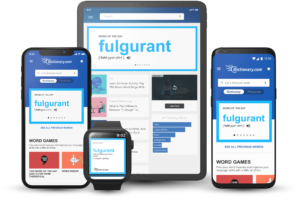Introduction:
The word “free” holds a unique place in the lexicon of human language. Its meaning transcends mere absence of cost; it embodies a spectrum of interpretations across linguistic, economic, legal, and philosophical realms.
This article embarks on an in-depth exploration of the multifaceted definitions and applications of “free,” shedding light on its diverse significance in various domains.
I. The Linguistic Perspective:
A. Etymology of “Free”:
- The journey of “free” from its Old English roots to its present form.
- Comparative analysis with related terms in Latin, Germanic, and Romance languages.
B. Semantic Range:
- The versatility of “free” in different contexts, from economics to personal freedoms.
- Synonyms and antonyms that share etymological connections with “free.”

II. Economic Implications:
A. Free Markets:
- An in-depth examination of the principles that underlie a free market economy.
- The symbiotic relationship between competition, demand, and supply.
B. Free Goods and Services:
- Defining goods and services that are provided without monetary exchange.
- Analyzing the impact of complimentary offerings on consumer behavior and market dynamics.
C. Freemium Models:
- A comprehensive overview of the business model offering basic services for free, with premium options available at a cost.
- Case studies from diverse industries, including technology, media, and gaming.
III. Legal and Copyright Aspects:
A. Creative Commons and Public Domain:
- A detailed look at licenses that grant creators the ability to share their work freely under specific terms.
- Discerning the nuances between various types of Creative Commons licenses and how they affect content usage.
B. Open Source Software:
- Unpacking the world of free software and its collaborative development paradigm.
- Weighing the benefits and challenges inherent in open-source projects, with notable examples.

IV. Philosophical and Ideological Perspectives:
A. Freedom and Liberation:
- Delving into the philosophical concept of freedom and its intricate relationship with the term “free.”
- Discussing its implications in political, social, and ethical contexts.
B. The Commons and Commoning:
- An exploration of the idea of shared resources and communal ownership.
- Examples from environmental, digital, and cultural spheres, illustrating the concept of the “commons.”
(FAQ):
Q1. How does “free” differ from “complimentary” in meaning?
A1. While both convey an absence of cost, “free” denotes something accessible without any conditions, while “complimentary” implies a gesture of goodwill or courtesy.
Q2. How do businesses benefit from offering products or services for free?
A2. Businesses may utilize free offerings as a strategic marketing tool to attract and engage customers, establish brand trust, and increase visibility. Additionally, it can serve as a gateway to upsell premium products or services.
Q3. What are some well-known examples of open-source software?
A3. Prominent examples of open-source software include the Linux operating system, the Mozilla Firefox web browser, and the Apache web server.
Conclusion:
“Free” is a word of boundless significance, encompassing far more than its literal meaning. From linguistic origins to economic, legal, and philosophical dimensions,
“free” encapsulates a rich tapestry of definitions and applications in our contemporary world. Profound comprehension of these various facets empowers individuals and businesses to navigate the complexities and opportunities associated with this ubiquitous term.